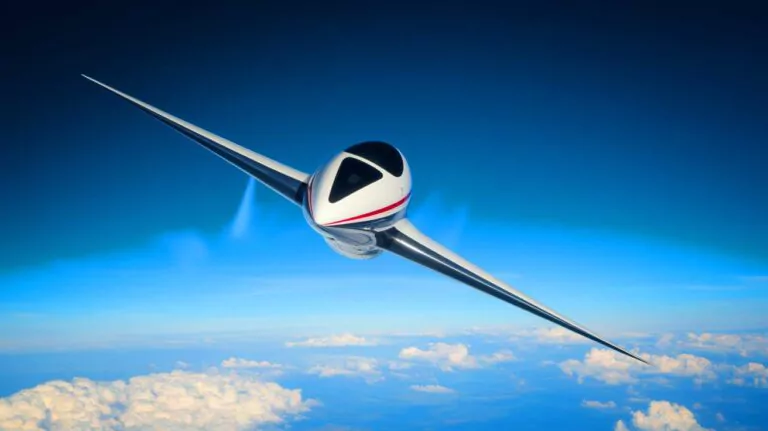| IN A NUTSHELL |
|
The race for hypersonic supremacy has intensified as the Pentagon embarks on a bold new venture. With Russia and China already deploying operational hypersonic systems, the United States is determined not to lag behind. The recent contract awarded to defense technology leader Kratos underscores the urgency of this mission. With a potential value of $1.45 billion, this initiative aims to close the gap by advancing U.S. capabilities in hypersonic technology through rapid and cost-effective testing. This development signifies a pivotal moment in defense, pushing the boundaries of speed and innovation.
Understanding the Kratos Contract
The U.S. Department of Defense has entrusted Kratos with a substantial five-year Other Transaction Authority (OTA) contract under the Multi-Service Advanced Capability Hypersonic Test Bed (MACH-TB) 2.0 initiative. This initiative falls under Task Area 1, where Kratos will lead the charge in systems engineering, integration, and testing. The contract, worth up to $1.45 billion, aims to facilitate the advancement of the National Hypersonic Initiative 2.0.
This program serves as a critical bridge between ground-based tests and full-scale system-level flight tests, effectively minimizing development risks and accelerating the deployment of new technologies to defense forces. Kratos spearheads a consortium of prominent defense contractors, including Leidos and Rocket Lab. Together, they aim to streamline the testing of hypersonic technologies, enhancing the United States’ strategic capabilities.
The MACH-TB program, initially launched by the U.S. Navy, now encompasses multiple task areas. While details about the awards for the remaining task areas remain undisclosed, the initiative’s focus on affordable and rapid testing is evident. Kratos’s CEO emphasized the importance of this milestone, reiterating their commitment to developing mission-critical solutions that meet the evolving demands of modern warfare.
Enhancing Hypersonic Testing Infrastructure
The United States has faced challenges in hypersonic development due to inadequate testing infrastructures. The MACH-TB initiative addresses this by significantly expanding the testing capacity available to the Department of Defense (DoD). Advanced flying testbeds, capable of assessing hypersonic subsystems under operational conditions, form the backbone of this program.
These testbeds can achieve speeds surpassing Mach 5, presenting a formidable challenge to conventional air defense systems. The strategic value of hypersonic technologies in modern warfare is undeniable. Taiwan’s recent development of the Qingtian missile, capable of reaching Mach 6, underscores the global race towards hypersonic advancements.
The urgency of these efforts is further highlighted by a successful joint Army-Navy hypersonic missile test. Meanwhile, the Air Force is making significant strides in its hypersonic projects. These developments signal a concerted effort to achieve parity among global rivals, with rapid advancements in U.S. hypersonic arms development.
The Role of Kratos in Hypersonic Leadership
Kratos has established itself as a leader in the hypersonic sector, thanks to its recent successes with the Erinyes Hypersonic Flyer and Zeus Solid Rocket Motors. Dave Carter, President of Kratos Defense and Rocket Support Services Division, expressed enthusiasm for leveraging this expertise in the MACH-TB 2.0 program.
The company’s strategic focus on low-cost, high-efficiency solutions aligns with the broader objectives of the MACH-TB initiative. By prioritizing economical approaches, Kratos aims to address the pressing national requirement for accelerated hypersonic flight testing. The company’s commitment to innovation is further reflected in its collaboration with other defense contractors, fostering a comprehensive approach to hypersonic development.
As Kratos continues to lead in testing and deployment, the MACH-TB 2.0 program represents a significant step forward in enhancing the United States’ national defense capabilities. The synergy between Kratos and its partners promises a future where hypersonic technologies play a pivotal role in shaping global defense strategies.
Future Implications of Hypersonic Advancements
The MACH-TB 2.0 initiative is more than just a contract; it represents a strategic shift in how the United States approaches defense innovation. By accelerating the development and deployment of hypersonic technologies, the U.S. aims to maintain a competitive edge in an increasingly complex global landscape. The collaboration between government and industry leaders like Kratos demonstrates a commitment to addressing emerging threats and bolstering national security.
The potential implications of these advancements extend beyond military applications. Hypersonic technologies could revolutionize various sectors, from aerospace to communications, offering new possibilities for innovation and growth. As the United States continues to invest in these capabilities, the question remains: how will these advancements reshape our world, and what new challenges and opportunities will they bring?
Did you like it? 4.7/5 (26)







Wow, $1.45 billion! That’s a lot of dough for some fast planes! 🤑
Are we sure Kratos can deliver on such a huge contract? 🤔
Hopefully, this speeds up the development process. Can’t afford to fall behind! 🏃♂️💨
Thank you for the update. This seems crucial for national defense. 🇺🇸
Why were Leidos and Rocket Lab chosen as partners? Are they the best for this job?
Can hypersonic tech be used for anything outside military? Sounds exciting!
Didn’t know the US was lagging behind Russia and China in this area. That’s concerning.
Does this mean we’ll see real-life “Top Gun” action soon? ✈️
I hope this doesn’t lead to an arms race. Is there any diplomatic angle here?
Kratos has been doing great work. Looking forward to seeing the results!
This is a pivotal moment indeed. The stakes are high!
Is Kratos taking any environmental concerns into consideration with this project?
How does this fit into the broader defense strategy of the US?
So hypersonic is the future, huh? Buckle up! 🚀
Why isn’t SpaceX involved in this? Aren’t they leading in aerospace tech?
This is all well and good, but let’s not forget about cyber defense. 💻🛡️
Does anyone else feel like we’re living in a sci-fi movie? 😮
What happens if the technology falls into the wrong hands?
Is hypersonic tech just a fancy term for faster missiles?
Hope they test these things far away from civilian areas! 😬
Is this Kratos’ biggest contract ever? Seems like a massive deal!
What exactly is the MACH-TB program? Sounds complicated!
Time to watch some hypersonic test flights on YouTube! 📺
I wonder if this tech will be obsolete by the time it’s operational.
Fast planes and rockets sound cool, but what about the potential risks? 🤨
How does hypersonic tech impact global security dynamics?
Are there any civilian applications for hypersonic travel? 🛫
This is great news for the defense sector. Keep it up, Kratos!
Hope this doesn’t mean higher taxes to fund these projects. 😏
Interesting read, but a bit too technical for me!
Can we get an update on other countries’ hypersonic developments?
Looking forward to seeing how this changes the global arms race.
Will these advancements lead to new job opportunities in tech?
Exciting times for defense enthusiasts! 🛡️✨
How soon can we expect these hypersonic systems to be operational?
So, we’re spending billions just to play catch-up? Classic! 😅
Great initiative! We need to stay ahead in tech and defense.